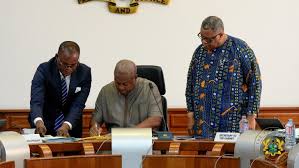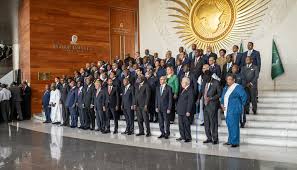Ghana drops in Corruption Perception Index; GII calls for urgent reforms
Ghana drops in Corruption Perception Index; GII calls for urgent reforms

Ghana’s fight against corruption has hit another stumbling block, as the country’s score on the 2024 Corruption Perception Index (CPI) dropped slightly from 43 to 42, according to a report released by the Ghana Integrity Initiative (GII), the local chapter of Transparency International.
The decline, though marginal, underscores deeper systemic issues that continue to plague the nation’s governance structures.
The latest CPI rankings, which assess 180 countries and territories, place Ghana at 80th position, reflecting a decade-long downward trend.

This performance places Ghana 11th among 49 Sub-Saharan African (SSA) countries, alongside Albania.
The country lags behind regional leaders such as Seychelles (72), Cabo Verde (62), Botswana (57), Rwanda (57), and Mauritius (51), all of whom scored above 50. However, Ghana performed better than Burkina Faso (41), South Africa (41), and Tanzania (41).
Since 2015, Ghana has lost five points on the index, a troubling indicator that anti-corruption measures have not yielded the desired impact despite numerous policy interventions and institutional reforms.
Transparency International’s data reveals a persistent gap between Ghana’s anti-corruption rhetoric and tangible results. The GII, in its analysis, pointed out that the gradual decline in the CPI score over the past ten years suggests that existing legal, policy, and administrative frameworks may be insufficient or poorly implemented.
“The decline signals that the policy, legal, and administrative reforms require further review and strengthening,” the GII stated.
In response to the latest findings, the GII has called for urgent reforms across all branches of government.
Among its key recommendations is a push for Parliament to bolster its financial oversight mechanisms.
The GII urged lawmakers to empower the Public Accounts Committee (PAC) with enforcement authority and establish a Budget and Fiscal Analysis Department (BFAD) to improve fiscal discipline and curb the mismanagement of public funds.
On the judiciary, GII has called practitioners within the sector to step up their role in the anti-corruption fight.
The GII proposed the creation of a specialised anti-corruption court to expedite the handling of corruption-related cases, citing Tanzania as a successful example of such a model.
Additionally, the executive branch has been urged to prioritise the passage of the Conduct of Public Officers’ Bill, which aims to strengthen regulations around asset declaration, conflict of interest, and sanctions for non-compliance.
The GII’s recommendations highlight the need for a more coordinated and robust approach to tackling corruption, particularly in light of Ghana’s declining CPI performance. While the country has made strides in implementing anti-corruption measures, the latest data suggests that these efforts have not been enough to reverse the trend.
As Ghana grapples with these challenges, the GII’s report serves as a stark reminder that combating corruption requires not only well-crafted policies but also the political will and institutional capacity to enforce them effectively.
Without significant reforms, the country risks further erosion of public trust and continued setbacks in its anti-corruption agenda.




